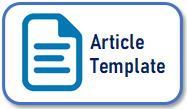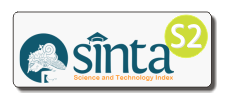The Effectiveness of Zakah, Infaq, Sadaqah (ZIS) Management by BAZDA to Improve the Welfare of Society in Central Java
DOI:
https://doi.org/10.14421/grieb.2014.022-02Keywords:
Management of Bazda, Muzaki, Mustahiq, Poverty, WelfareAbstract
The big potential of Zakah, infaq, and Sadaqah (ZIS) in Central Java is one of the instruments for reducing poverty and improving the welfare of the society. This study aims to assess the effectiveness of management ZIS optimally so as to make a significant contribution to poverty reduction and improved well-being. Regulation No. 23 of 2011 on the management of Zakah has provided the legal basis which is very strong in the management of Zakah, by collecting, distributing, and accountability of it.The unit of analysis in this study is the Bazda in Central Java Province. The sample is four districts/cities, including: the city and regency of Semarang, Jepara and Demak district. In addition, the study respondents aremanagers of Bazda, muzzaki, and mustahik in four districts/cities.The findings show that all Bazda have already had database on muzaki and mustahik, but still incomplete, so it cannot be done for the sake of collecting and mapping the distribution of ZIS effectively and efficiently. Moreover, the condition of the building, infrastructure and operational funds sourced budgets have not been able to support the operations and performance of the collection, distribution and reporting effectively and efficiently. Distribution and utilization of ZIS is dominated for the fulfillment of consumer needs and focused on the areas of health, education and social, while, empowering productive business activities is still slightly low, so that it is necessary to have a paradigm shift in the management of the ZIS to make mustahikbecome more productive. It is required a coordinated and integrated cooperation between Bazda District/City, Baz Districts, the regency/state, enterprises, SOEs and private agencies in order to collect ZIS effectively and efficiently and not only dominated merely by the civil servants. Reporting and accountability system, so far, has been conducted in a transparent and accountable through a written report to the District / City Government and Parliament, but some Bazdado not provide it to mustahikin detail, either in book form or through the WEB. Only the district of Jepara which has a complete reporting system, regular, detailed and printed in book form to be sent to the Government, Parliament, and the muzaki of related parties.References
Adnan Muhammad Akhyar dan Furywardhana (2006), Evaluasi Non Performing Loan (NPL) Pinjaman Qardhul hasan (Studi Kasus di BNI Syariah Cabang Yogyakarta, JAAI, Volume 10 No. 2, December.
Antonio, Muhammad Syafi’i (2001), Bank Syari’ah Dari Teori ke Praktek, Jakarta: Gema Insani Press
Beik, Irfan (2009), The Use of Zakat as Financing Source for Micro and Small Scale Enterprises and Its Role in Reducing Poverty: A Case Study in Jakarta, Indonesia, Unpublished PhD Dissertation, IIUM Malaysia
Chapra, M. Umer (2000), The Future of Economics: An Islamic Perspektif”, Leicester, UK: The Islamic Foundation.
Islahi, A.A (2005), Zakah: A Bibliography, Scientific Publishing Centre, King Abdul-Azeez University, Jeddah, saudi Arabia.
Kahf, Monzer (1999), The Performance of the Institution of Zakah in Theory and Practice, paper Presented at the International Conference on Islamic Economics towards the 21st Century, Kuala Lumpur.
Kara, Muslimin H (2005), Bank Syari’ah di Indonesia: Analisis Kebijakan Pemerintah Indonesia Tentang Perbankan Syari’ah, Yogyakarta: UII Press
Khan, M. Fahim (1990), Zakat, Moderation and Aggregate Consumption in an Islamic Economy, Journal of King Absulaziz University: Islamic Economics, Vol. 2, pp. 101-105.
Lewis Mervyn K dan Latifa M. Algaoud (2007), Perbankan Syari’ah: Prinsip praktik dan prospek, Jakarta: Serambi
Nasution, Mustafa Edwin dkk (2007), Pengenalan Eksklusif Ekonomi Islam,Jakarta: Kencana
Perwataatmadja, Karnaen A dan Anis Byarwati (2008), Jejak Rekam Ekonomi Islam: Refleksi Ekonomi dan Pemikiran Para Ahli Sepanjang sejarah kekhalifahan, Jakarta: Cicero.
Qardhawi, Y. (1997), Fiqh az Zakat, 24th ed. Beirut: Mu’assasat al-Risalah, 37-38.
Saeed, Abdullah (2004), Menyoal Bank Syari’ah: Kritik atas Interpretasi Bunga Bank kaum Neo Revivalis, Jakarta: Paramadina
UU Nomor 23 Tahun 2011, “Pengelolaan Zakat”
Downloads
Published
Issue
Section
License
Global Review of Islamic Economics and Business is licensed under a
Creative Commons Attribution-ShareAlike 4.0 International License



















